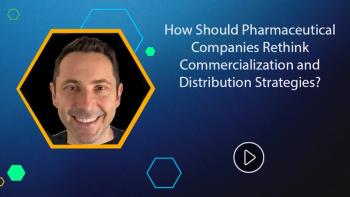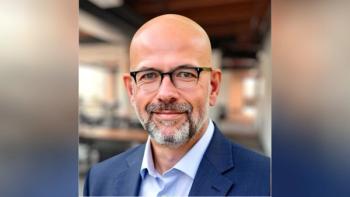
- Pharmaceutical Executive-10-01-2005
- Volume 0
- Issue 0
Leadership: Feed the Heart
There comes a point when people have enough stuff in their lives, but they can never have enough meaning. Leaders have to find opportunities for their eams to do more than turn the machine of profit.
Lance Armstrong is Superman. Sure, I've heard the recent allegations of doping, but I know the man and have worked with him and know just how much credit to give them: none.
Sander A. Flaum
He's an inspirational athlete, but what puts him on top is the team behind him—not just the other cyclists on Team Discovery, but also Team Armstrong, the innovative designers of bicycles, clothing, shoes, and helmets who created the elements that allowed one human being to achieve a feat of unparalleled strength and endurance for seven straight years.
In Andy Boynton and Bill Fischer's book Virtuoso Teams, the two business academics look at great teams like the writers of Sid Caesar's Your Show of Shows, the scientists on the Manhattan Project, and even the team behind Miles Davis' greatest jazz recordings. What's missing is any mention of virtuoso corporate teams. One reviewer suggested a reason why: They just do not exist.
This disturbs me. Why can't leaders—besides the usual suspects like Welch, Bossidy, and Gates—build teams that are willing to work as hard for their missions as Team Armstrong was willing to work for those seven victories? It is a business culture problem.
Armstrong's team didn't give its all for money. It gave it for the sake of accomplishing something great. And that's true for all of the examples that Boynton and Fischer point out in their book. In business culture, too many managers suffer from the "What's-in-it-for-me syndrome?" This creates a culture of individual takers, rather than one built on a shared spirit of teamwork.
It's the old case of the golden parachute, and abatement is nowhere in sight. After resigning under pressure from Morgan Stanley because of poor performance, CEO Philip Purcell walked off with $44 million over two years and a pension package guaranteeing him $1.2 million a year for life. His successor, John Mack, initially wanted $25 million a year in guaranteed salary, basing his figure on an average of what CEOs were paid at four other top investment banks. After some pushback, Mack agreed to tie his compensation to his performance. Hallelujah!
The challenge for leaders is to find a great unifying purpose that's not about money that will allow people to unleash their talents in heartfelt ways.
For example, when I ran Euro RSCG Becker, one of my top groups was the consumer pharmaceutical product group run by Terry Gallo. They had to jump through hoops to win assignments, and once they got a product, they worked 24/7 to make it perform beyond expectation. It was grueling work and often people burned out easily.
Terry and her group needed something extraordinary to work on. So I gave them a new challenge. They wouldn't have to pitch the account—it was given to them. There would be no financial performance concerns because the work was pro bono and the outcome the client wanted wasn't financial. Our client: the New York City Police Department. In the 1990s, the NYPD experienced a couple of unfortunate events in close proximity: the beating of Abner Louima and the accidental death of Amadou Diallo. The department was losing public trust, and, recruitment of new officers was way down.
Because of my commitment to the NYPD and to then-Commissioner Howard Safir, I wanted to help them with a new integrated marketing and public relations campaign. When Safir and several representatives from the NYPD met my group, they were won over by their integrity and commitment.
The team produced one of the most creative campaigns I ever saw. It won awards and spiked NYPD recruitment by 18 percent. What's more, it gave my team new vigor. They experienced first-hand the power of their efforts and the value of working for something other than a financial outcome. And we were able to transfer the energy generated from this pro bono assignment back into our commercial work.
The experience taught me a great lesson. It is essential to feed your team's heart as well as its belly. There comes a point when people have enough stuff in their lives, but they can never have enough meaning.
If we want to have virtuoso teams in business, then leaders have to find opportunities for their teams to do more than turn the machine of profit. They have to find projects and frame goals and missions worthy of the great hearts and minds they hope to hire and keep motivated on the job.
Sander A. Flaum is managing partner of Flaum Partners. He can be reached at
Articles in this issue
over 20 years ago
From the Editor: No Substitutesover 20 years ago
Following Scienceover 20 years ago
Washington Report: Antivirals: Meeting a World of Needover 20 years ago
From the Editor: Incorporating Complianceover 20 years ago
Under the Influenceover 20 years ago
Orchestrating Complianceover 20 years ago
Thought Leader: Room for Improvementover 20 years ago
Global Report: Animal Attacksover 20 years ago
Physician Frustrationover 20 years ago
Whose Afraid of Authorized GenericsNewsletter
Lead with insight with the Pharmaceutical Executive newsletter, featuring strategic analysis, leadership trends, and market intelligence for biopharma decision-makers.




